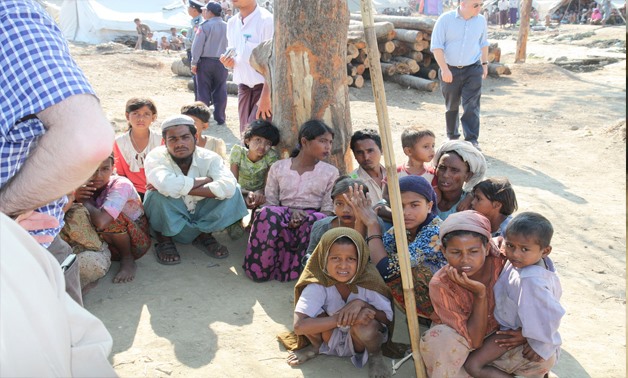
Displaced Rohingya people in Rakhine State - Foreign and Commonwealth Office
UNITED NATIONS - 10 July 2017: The United States on Monday called on Myanmar to allow a United Nations fact-finding mission to investigate widespread allegations of killings, rape and torture by security forces against Rohingya Muslims in Myanmar's Rakhine state.
The Geneva-based U.N. Human Rights Council established the inquiry in March, but Aung San Suu Kyi, the de facto leader of Myanmar's civilian government and also its foreign minister, has rejected the allegations and opposes the mission.
A Myanmar official said on June 30 that the country would refuse entry to the U.N. investigators.
The U.S. ambassador to the United Nations in New York, Nikki Haley, said, "It is important that the Burmese government allow this fact-finding mission to do its job."
"The international community cannot overlook what is happening in Burma – we must stand together and call on the government to fully cooperate with this fact-finding mission," she said in a statement. Myanmar was formerly known as Burma.
Some 75,000 Rohingya fled northwestern Rakhine state to Bangladesh after Myanmar's army carried out a security operation last October in response to deadly attacks by Rohingya insurgents on border posts.
A U.N. report from February, based on interviews with some of the Rohingya refugees, said Myanmar's security forces have committed mass killings and gang rapes of Rohingya in a campaign that "very likely" amounts to crimes against humanity and possibly ethnic cleansing.
"No one should face discrimination or violence because of their ethnic background or religious beliefs," Haley said.
Myanmar's government regards the approximately 1 million Rohingya as illegal migrants from neighboring Bangladesh and denies them citizenship, even though Rohingya families have lived there for generations.
Comments
Leave a Comment